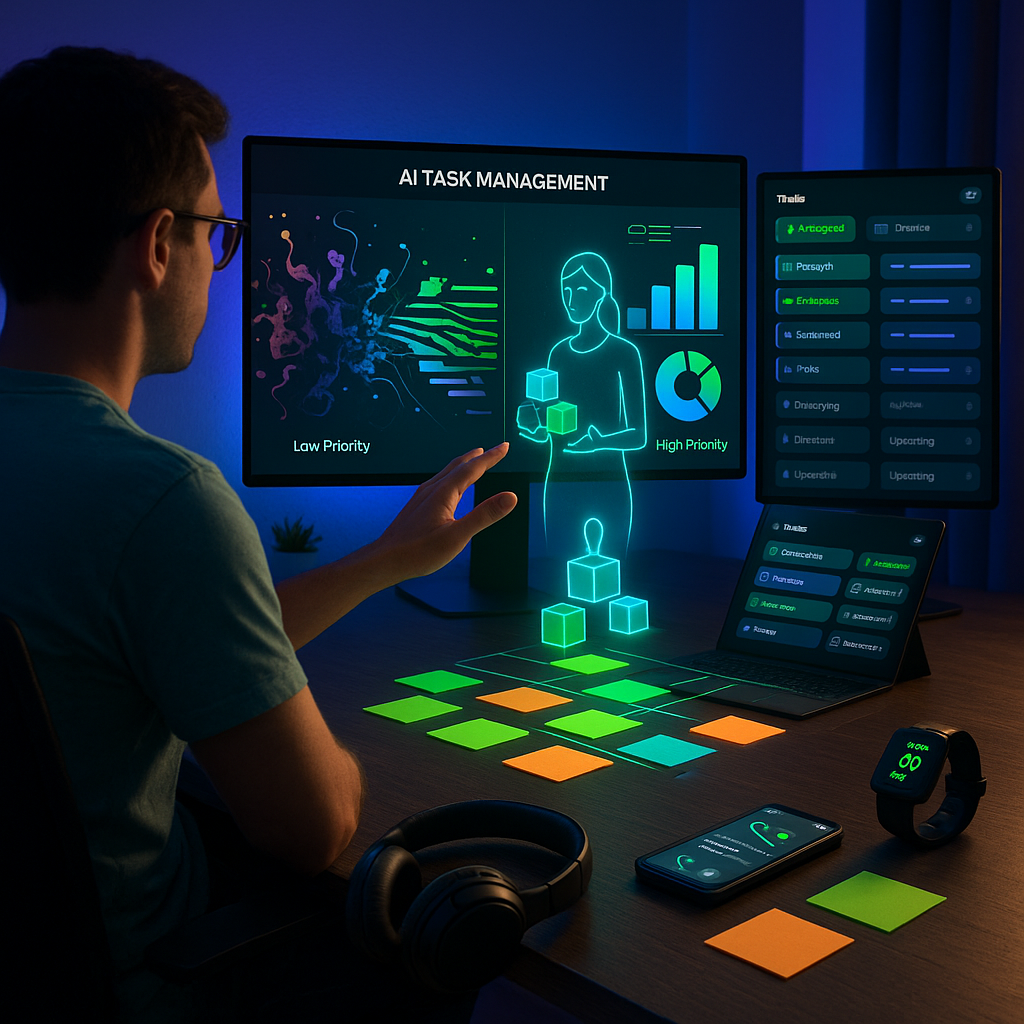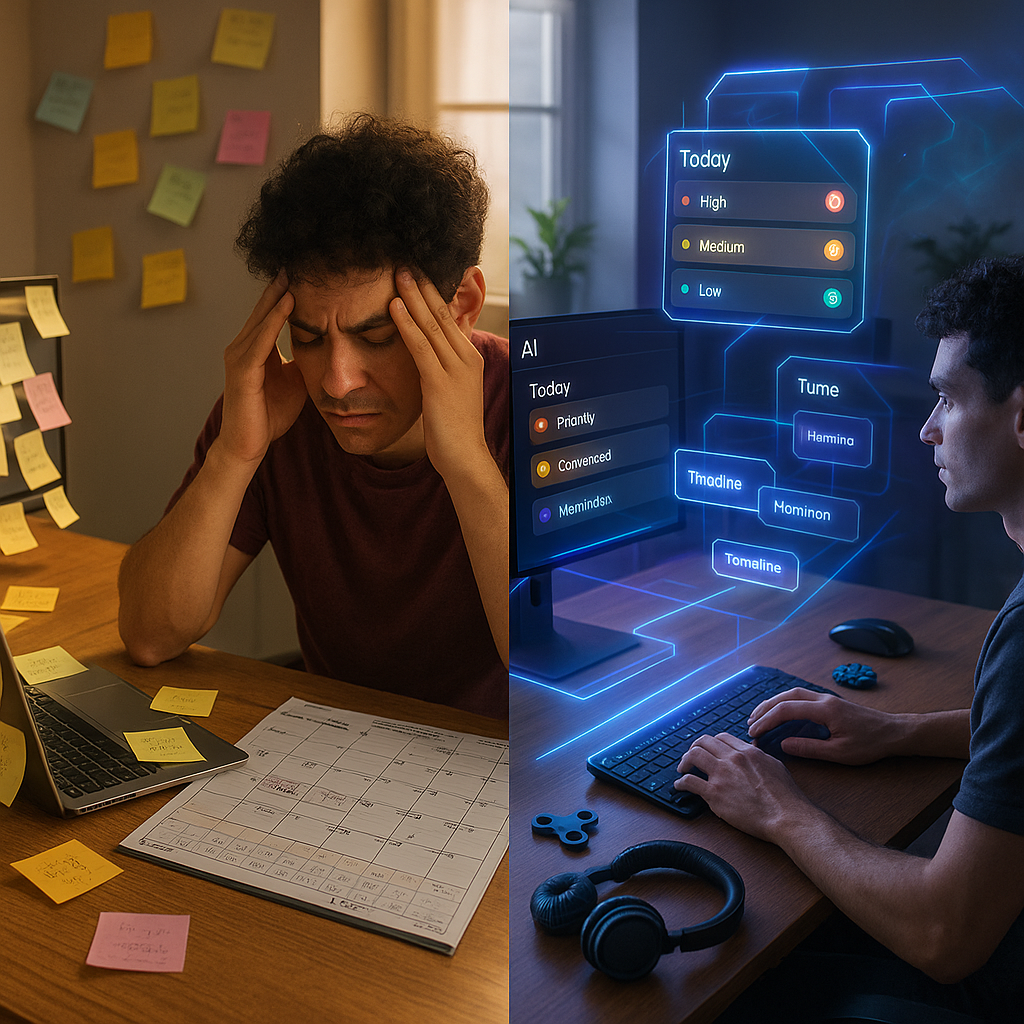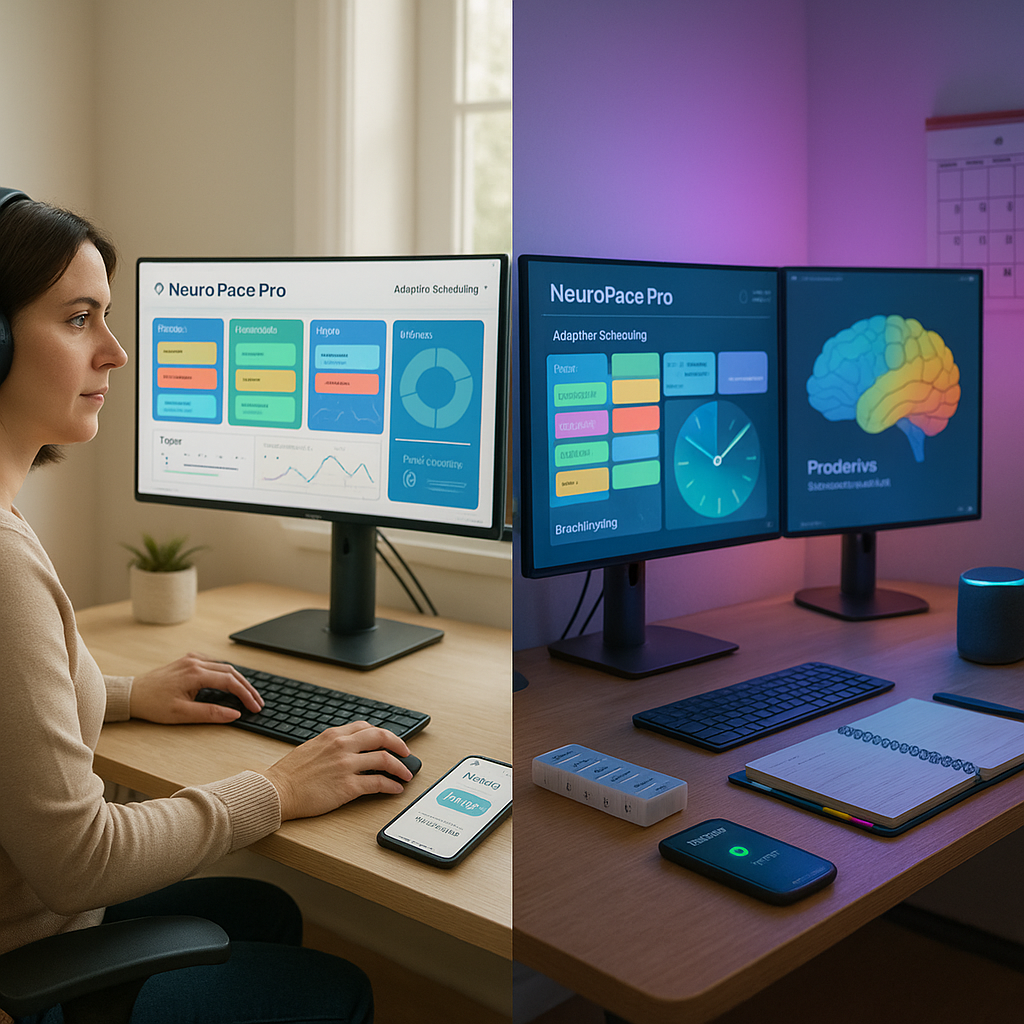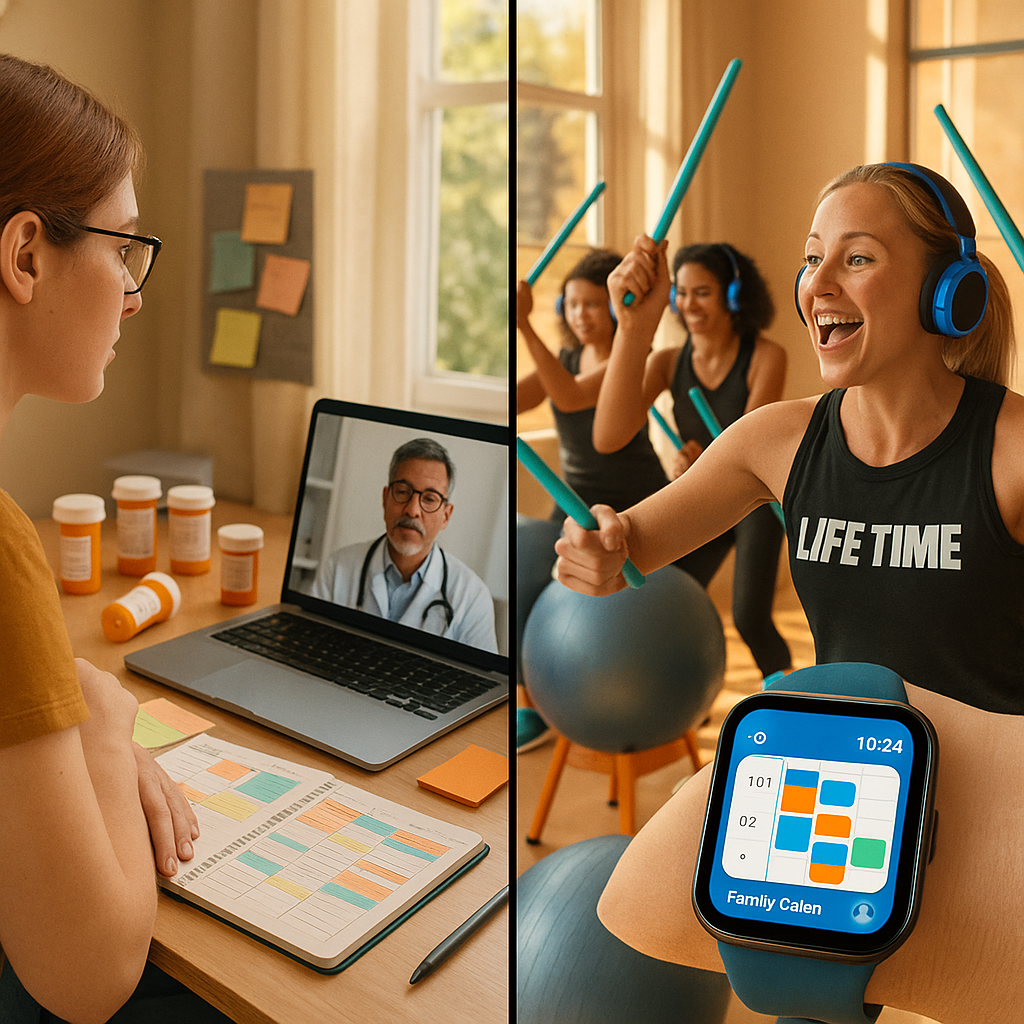Key Takeaways
- Personalized automation increases consistency. Modern apps now learn from daily habits and automate reminders, helping users stay on track without constant manual adjustments.
- ADHD-specific features add value. Tools are designed with flexible routines, gentle nudges, and progress tracking for those who seek both novelty and structure.
- Founders with lived experience drive innovation. Many apps are built by entrepreneurs with ADHD, providing solutions rooted in real challenges and strengths.
- Demand is rising for sustainable systems. Professionals report that these tools help reduce overwhelm and burnout while enabling growth in projects and businesses.
- AI assistants offer an edge for neurodivergent professionals. Smart tools make it easier to harness strengths like creative bursts and hyperfocus, while automating repetitive tasks.
Introduction
AI-powered task management apps are changing how neurodivergent professionals with ADHD manage routines. These tools offer personalized automation, flexible scheduling, and gentle reminders tailored for creative minds and solopreneurs. As demand grows for ADHD-friendly workflows that actually stick, many of these smart solutions (often built by founders with firsthand experience) are helping users transform chaotic cycles into sustainable, customized systems.
How AI Adapts to ADHD Brains
AI-powered task management apps are integrating features that adapt to individual ADHD patterns and working styles. Using machine learning, these tools identify when users are most productive and adjust schedules, breaking complex projects into manageable steps.
Apps like Tiimo and Mindway AI analyze user behavior to generate personalized workflow suggestions. Their algorithms consider common ADHD traits such as time blindness and shifting attention spans.
According to the Digital Wellness Institute, AI-assisted task apps for neurodivergent users increase task completion rates by 47% compared to traditional productivity tools. Their real-time adaptability, rather than rigid system enforcement, sets them apart.
Personalization Features That Matter
Modern AI task assistants provide dynamic features tailored for ADHD workflows:
- Context-aware reminders that shift timing based on user responses
- Task complexity analysis that recommends optimal work periods
- Automated break schedules aligned with natural attention cycles
- Visual progress tracking to support dopamine-driven motivation
By learning from individual work patterns, these tools create what developers call friction-free productivity zones. Users spend less time managing systems and more time in focused work.
The most effective apps also introduce body doubling features and AI-supported accountability partnerships. These elements boost engagement without overwhelming users, helping to establish sustainable routines while accommodating executive function differences.
Real Impact on Daily Workflows
Professional ADHD coach Sarah Martinez has observed that clients using AI task apps experience a 60% reduction in planning-related stress. The technology helps with decision-making and prioritization, easing common executive function struggles.
Tech industry professional Alex Chen stated that traditional to-do lists became overwhelming. With an AI assistant, tasks are broken down naturally, and the system adjusts its prompts based on energy levels.
Enterprise solutions are also adopting neurodivergent-friendly features in workplace productivity tools. Several large companies report higher project completion rates and improved employee satisfaction after introducing these adaptive systems.
Emerging Innovations
Developers are exploring advanced emotional intelligence capabilities to recognize signs of task paralysis or overwhelm before they disrupt productivity. These innovations aim to provide proactive support rather than react after challenges arise.
New neural network models are being trained on diverse ADHD behavior patterns for more refined task suggestions and timing recommendations. Developers are considering various ADHD presentations and common coexisting conditions.
Integration with wearable technology is further enhancing these apps’ ability to measure focus and energy levels. Initial testing has shown promising results in matching work requirements to users’ optimal performance windows.
Conclusion
AI task apps are making ADHD-friendly workflows more attainable by tailoring routines to individual needs, resulting in lower stress and higher project completion rates. This trend toward personalized automation supports broader industry efforts for inclusive productivity tools. What to watch: Upcoming innovations may integrate emotional awareness and wearable tech data to provide even more adaptive support.





Leave a Reply